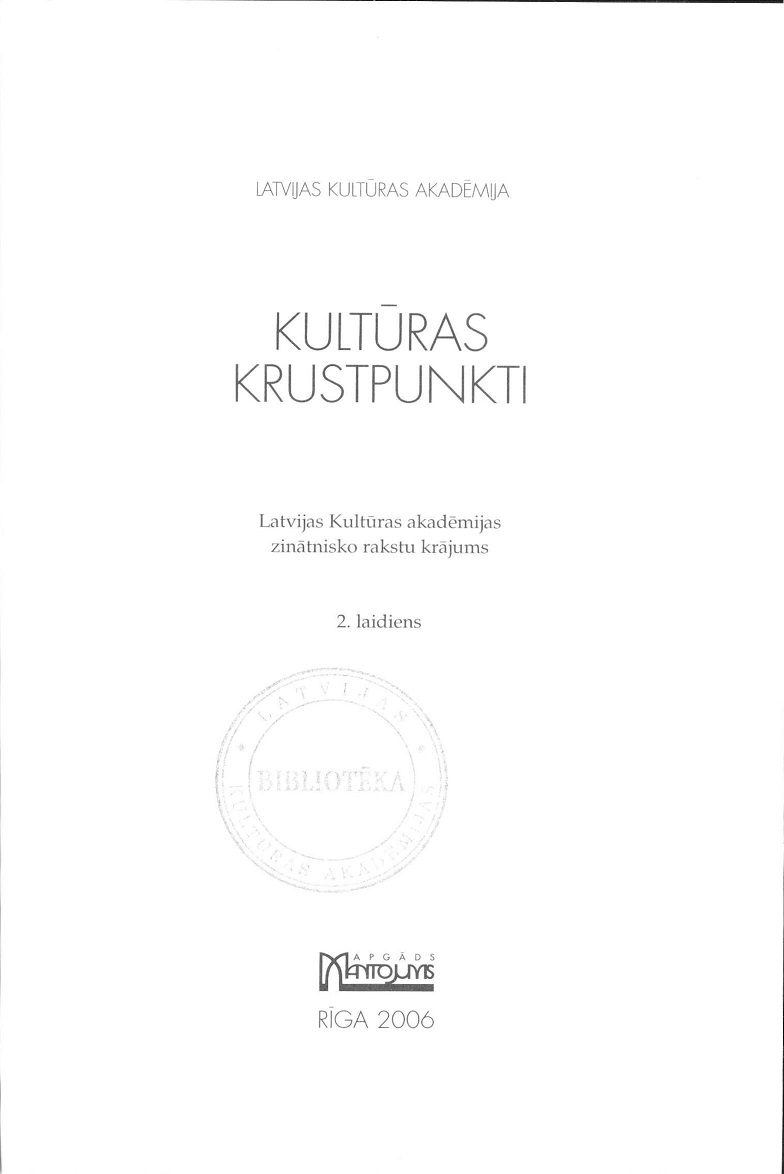Nacionālās identitātes refleksija Latviešu komponistu mūzikā
Reflection of National Identity in the Latvian Music
Author(s): Solveiga Selga-TimpereSubject(s): Customs / Folklore, Music, Culture and social structure , Sociology of Culture, Sociology of Art, Identity of Collectives, History of Art
Published by: Latvijas Kultūras akadēmija
Keywords: Latvia; music; national identity; musical heritage; folk songs; traditional music; cultural values;
Summary/Abstract: Towards the end of the 19th and the beginning of the 20th century such Latvian composers as Jurjānu Andrejs, Emils Dārziņš, Emils Melngailis, Vītols and Alfreds Kalniņš got influenced from that ethical, spiritual and musical heritage which has been stored up in Latvian folk songs, each of them in his own and very specific way. At the same time the common memories, connected with Latvian history and reflected in folk songs, grew fundamental for Latvian national identity. Therefore it was considered to be the source of creation for Latvian composers of the above period, that influenced also composers of the following generations. That resulted in the establishment of a particular tradition of com position which incorporated different features of Latvian national identity. Before 1990 under the conditions of different reigning totalitarian ideologic it was impossible to engage in comprehensive studies of the expression of national identity in music and arts in Latvia. Likewise misunderstood ideas of globalisation do not promote the interest in the cultural values of one's own people and in related ethnical and esthetic aspects in general. The Latvian compos er Emils Dārziņš pointed out in "All Ready for a Journey" an essay written as early as the beginning of the 20th century that the Latvian people have their own cultural mission among other people, citing as an argument the ample amount of folk poetry and songs, their ethical, philosophic depth, the musical versatility and the beauty of melodies, typical for the Latvian ethnic culture, which could be further developed under beneficial conditions of a state in which culture is one of the major priorities of life. Contrary to the assumption that the Latvian nation al awakening begun in the 2nd part of the 19th century the author postulates the hypothesis that the first indications of national awakening in Latvia appeared already in the 18th century alongside with the tradition of choir singing intro duced by Herrnhutian Brethren and further developed and refined by the Latvian farmers in Vidzeme.
Journal: Culture Crossroads
- Issue Year: 2/2006
- Issue No: 1
- Page Range: 254-262
- Page Count: 9
- Language: Latvian

